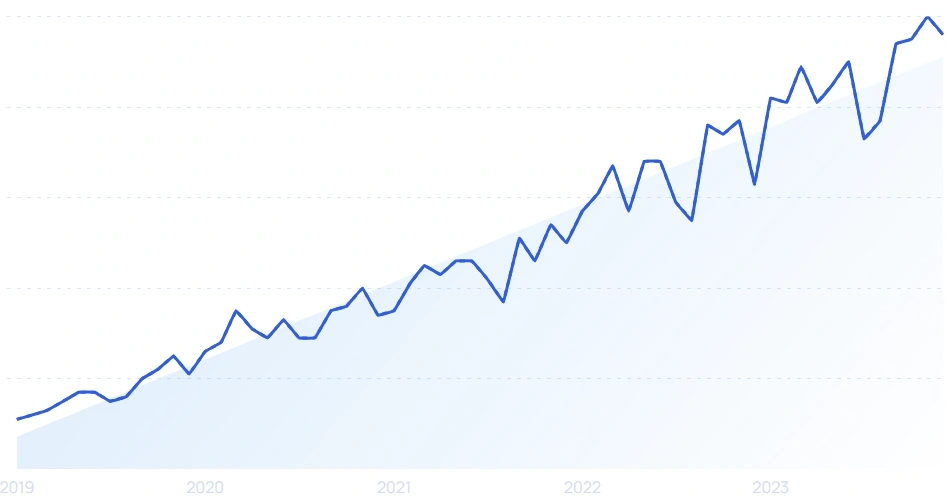The Fastest Growing AI Apps in the US Market highlights the remarkable surge of artificial intelligence applications that are reshaping industries and enhancing productivity. As businesses and consumers alike embrace innovative technology, the demand for efficient AI solutions has skyrocketed, leading to the emergence of numerous applications that streamline processes and improve user experiences. This dynamic growth not only signifies the potential of AI but also reflects a broader trend towards automation and smart technologies across various sectors.
In this exploration, we delve into the factors driving this growth, the sectors most impacted, and the specific applications that are leading the charge in the US market. By examining these trends, we aim to illuminate the significance of AI technologies in contemporary society and their implications for the future.
In the contemporary landscape of academia and research, the dissemination of knowledge through structured and well-formatted articles is crucial. This article aims to delve into the significance of research methodologies, their applications, and the impact they have on various fields of study. By exploring different types of research methodologies, one can appreciate how they shape the understanding of data and influence decision-making processes.Research methodologies serve as foundational pillars upon which studies are built.
They encompass a range of techniques and procedures that researchers employ to collect, analyze, and interpret data. The selection of a particular methodology often depends on the research objectives, the nature of the data, and the desired outcomes. Broadly, research methodologies can be categorized into three primary types: qualitative, quantitative, and mixed methods.Qualitative research methodologies focus on understanding human behavior, experiences, and social phenomena.
This approach is characterized by the collection of non-numerical data, such as interviews, focus groups, and observations. The aim is to gain insights into individuals’ perceptions, motivations, and emotions. Qualitative research is particularly useful in fields like psychology, sociology, and anthropology, where the complexity of human experiences cannot be fully captured through numerical data alone.For instance, in a study examining the coping mechanisms of individuals facing chronic illness, qualitative methodologies would allow researchers to gather in-depth narratives about patients’ experiences, thereby uncovering themes related to resilience, emotional challenges, and support systems.

The analysis of such data often involves thematic analysis or grounded theory, which helps to identify patterns and generate theories grounded in the participants’ perspectives.On the other hand, quantitative research methodologies are centered around the collection and analysis of numerical data. This approach often employs statistical techniques to test hypotheses and establish relationships between variables. Quantitative research is commonly used in fields such as economics, health sciences, and education, where objective measurements and generalizable findings are paramount.
For example, in a clinical trial assessing the efficacy of a new medication, researchers would randomly assign participants to treatment and control groups, collect data on health outcomes, and apply statistical analyses to determine the medication’s effectiveness. By leveraging quantitative methodologies, researchers can make data-driven conclusions that contribute to evidence-based practices and policies.Mixed methods research methodologies combine elements of both qualitative and quantitative approaches.
This hybrid methodology allows researchers to capitalize on the strengths of both qualitative and quantitative data, providing a more comprehensive understanding of research questions. Mixed methods research is particularly beneficial when exploring complex phenomena that require both numerical data for generalizability and qualitative insights for depth.An illustrative example of mixed methods research can be found in educational studies evaluating teaching strategies.
Researchers may employ surveys (quantitative) to assess student performance and interviews (qualitative) to understand students’ experiences and perceptions of the teaching methods employed. This integrative approach enriches the findings, allowing for a more nuanced understanding of the effectiveness of the strategies in different contexts.Once the appropriate research methodology has been chosen, researchers must also consider the research design, which Artikels the overall strategy for conducting the study.
Research designs can be classified as experimental, observational, longitudinal, or cross-sectional, among others. Each design has its unique set of advantages and limitations that influence how findings can be interpreted and applied.Experimental designs are characterized by the manipulation of independent variables and control over extraneous factors, allowing for causal inferences. In contrast, observational designs involve the examination of naturally occurring phenomena without intervention, which may limit the ability to establish cause-and-effect relationships.
Longitudinal studies track changes over time, making them particularly valuable for understanding developmental processes, while cross-sectional studies provide a snapshot of a population at a single point in time.The choice of research design is crucial as it impacts the validity and reliability of the findings. Researchers must carefully evaluate their objectives, the nature of the data, and the context of the study to select the most appropriate design that aligns with their research questions.In addition to methodology and design, ethical considerations play a fundamental role in the research process.
Researchers are tasked with ensuring that their studies adhere to ethical standards, protecting the rights and welfare of participants while maintaining the integrity of the research. This includes obtaining informed consent, ensuring confidentiality, and minimizing potential harm to participants.Ethical dilemmas can arise in various research contexts, necessitating the establishment of ethics review boards and institutional review boards (IRBs) to oversee research proposals and safeguard participants’ rights.
Researchers are encouraged to engage in ethical reflexivity, critically reflecting on the implications of their work and the potential impact it may have on individuals and communities.Moreover, the dissemination of research findings is a critical step in the research process. Scholars must effectively communicate their work to a broader audience, including academic peers, practitioners, policymakers, and the public. Various platforms exist for knowledge dissemination, including peer-reviewed journals, conferences, and social media.Publishing in peer-reviewed journals is often seen as the gold standard for academic dissemination, as it undergoes rigorous evaluation by experts in the field.
However, there remains a growing recognition of the importance of open access publishing, which enhances the visibility of research and allows for greater public engagement with scientific knowledge. The advent of digital platforms has also revolutionized how research is shared, enabling researchers to reach diverse audiences and foster collaborative discourse.In conclusion, research methodologies are pivotal in shaping the landscape of scientific inquiry.
By understanding the nuances of qualitative, quantitative, and mixed methods approaches, researchers can make informed choices that enhance the validity and applicability of their findings. The interplay between research methodology, design, ethics, and dissemination underscores the complexity of the research process and the responsibility researchers hold in contributing to the body of knowledge. As the academic community continues to evolve, embracing innovative methodologies and fostering ethical practices will be essential in addressing the pressing challenges of our time and advancing the frontiers of knowledge.




